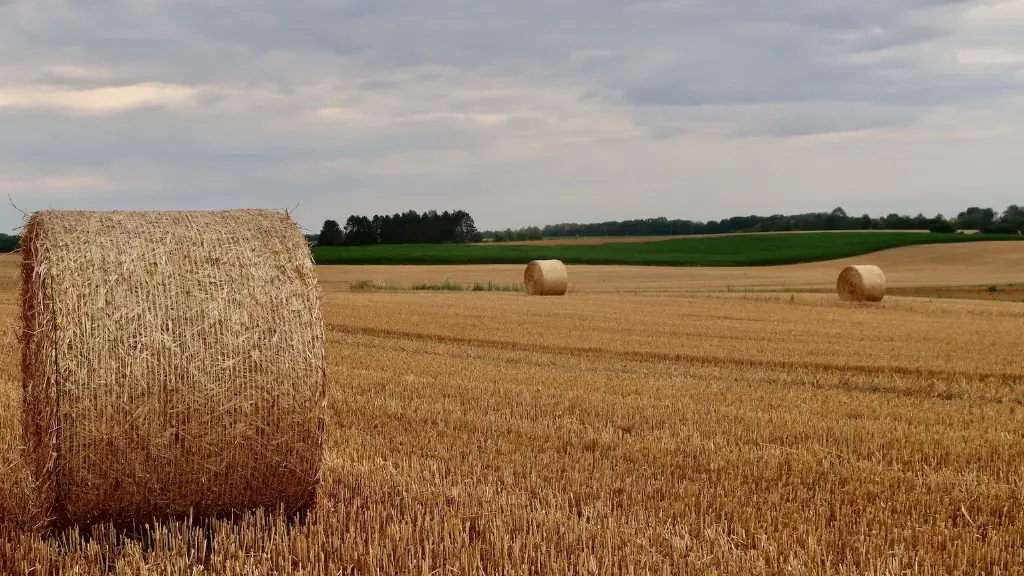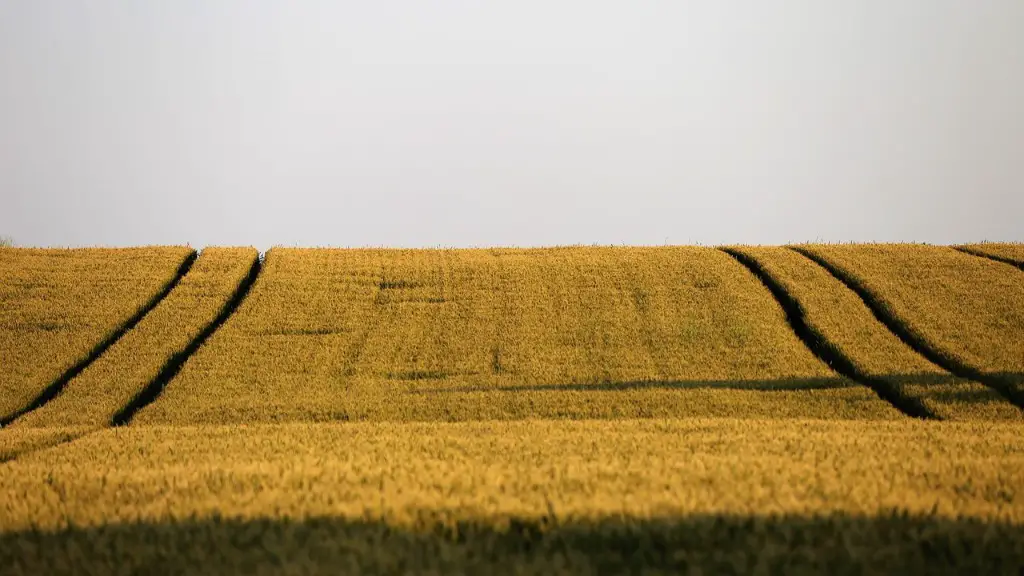The responsibility of the Department of Agriculture (USDA) is to ensure that our nation’s agricultural products, services, and processes remain safe, healthy, and of the highest quality. This is achieved by promoting research, advancing sound production and management practices, and providing regulatory oversight. USDA strives to improve the lives of farmers, ranchers, consumers, and all who benefit from the nation’s agricultural bounty.
The USDA is responsible for determining food safety standards and industry regulations. Through the use of research and inspections, the department works to ensure that Americans consume products that are safe and of adequate nutritional quality. The USDA utilizes a number of means to monitor, test, and verify the safety of food products as they are grown, harvested, processed, and distributed.
The Department of Agriculture also has a responsibility to support the farmers and ranchers who grow the nation’s food. The USDA works to promote improved farm practices, conducts research and invests in rural communities. This is done to encourage the production of higher quality food, improved energy efficiency and conservation, and a healthier environment.
The USDA is also responsible for providing assistance to the country’s food and agriculture industry in the event of disasters, such as hurricanes, floods, or fires. It provides financial assistance to those affected, and helps to rebuild infrastructure, promote sustainable growth, and rebuild the region’s local economies.
In addition, USDA works to protect and preserve our forests, rangelands, and grasslands. It does this by promoting sustainable and ecological management practices, protecting water quality, and providing access for recreation and wildlife habitat. This helps to ensure that our nation’s natural resources are conserved and remain healthy for future generations.
The USDA is also responsible for facilitating international trade, and works to encourage the production and export of agricultural products. This helps to support the US economy by creating new jobs and providing reliable markets for our nation’s farmers and producers.
Finally, the Department of Agriculture works to ensure that all outlets selling food, such as grocery stores and restaurants, meet hygiene and food safety regulations. Through measures such as inspections, regulations, and standards, the USDA works to ensure the safety and nutritional quality of the food we eat.
Research & Development
The USDA encourages research and development within the agricultural industry, seeking to support innovation and progress. The department not only provides grants to researchers, but also partners with industry to identify opportunities for improvement. By developing better production practices and creating new technologies, USDA seeks to improve the efficiency and quality of agricultural products.
USDA also sponsors educational programs, such as 4-H, to educate young people about the importance of agriculture and the opportunities the industry can provide. This helps to create the next generation of farmers and agricultural leaders.
The agency also works to advance organic farming systems and organic labeling standards, which provide greater consumer transparency into the origin and contents of their food. This helps consumers make healthier, more informed choices.
Finally, the Department of Agriculture also works to ensure animal welfare and protect the rights of workers. By developing regulations to control the humane treatment of livestock, USDA strives to ensure that animals are treated humanely, while also promoting fairness and safety in the workplace.
Food Assistance Programs
USDA plays a key role in providing food assistance to those who are most in need. The Supplemental Nutrition Assistance Program (SNAP) is the largest of the USDA’s food assistance programs. It helps low-income individuals and families access adequate nutrition.
The department also oversees a number of school meal and nutrition programs, providing free and reduced-priced meals to children from low-income families. This provides kids with the nutrition they need to succeed in school and life.
USDA operates a number of food banks and other charitable organizations, creating channels for donations and providing food to those in need. The department also gives grants to research organizations to identify innovative solution for reducing food insecurity.
Finally, USDA works to promote nutrition education in communities nationwide. The department provides resources, conducts campaigns, and partners with local organizations to ensure that Americans make healthy choices when it comes to their diets.
Rural Development Programs
USDA has a responsibility to promote the economic development of rural communities and build infrastructure in these areas. The department operates a number of grants and loan programs to help spur investment in rural areas.
These programs focus on improving businesses, creating jobs, providing access to capital, and developing affordable housing. The department also provides grants to development organizations that are committed to the revitalization of rural and underserved communities.
The USDA also helps small farmers by providing them with access to technical assistance and loans. This helps to promote the growth of small farms and family-owned businesses.
Finally, USDA invests in water and wastewater infrastructure in rural areas. These investments help to bring clean and safe drinking water to underserved areas, ensuring the health of residents and businesses.
International Trade & Development
USDA works to facilitate international trade and development in order to expand markets for US agricultural products. The department negotiates agricultural trade agreements, provides technical assistance to developing countries, and works with US embassies to expand development programs abroad.
The agency is also responsible for providing resources and guidance to US agricultural exporters. This includes advocacy, market intelligence, and policy guidance to help ensure compliance with all applicable laws and regulations.
Finally, the department works with foreign governments to promote agricultural trade with the US. This helps to create additional opportunities for US agricultural products in international markets.





